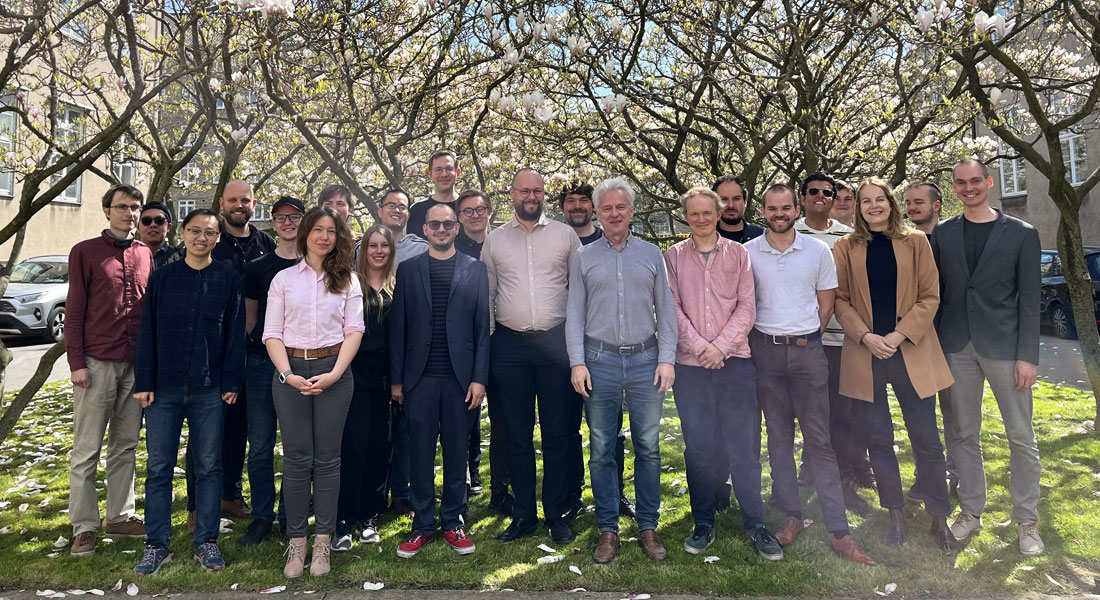Researchers aim to advance quantum sensing to transform disease diagnosis and prevention
With its unprecedented precision, quantum sensing holds the potential to reform biomedical and health sciences by improving the diagnosis and prevention of diseases. The Novo Nordisk Foundation has awarded a grant of DKK 150 million to establish the Copenhagen Center for Biomedical Quantum Sensing, under which an international research collaboration aims to develop novel quantum sensing principles and techniques for early detection of diseases.
Human health depends on our ability to prevent, diagnose and treat disease, but many conditions hardly cause any symptoms in their early stages when they could be effectively treated. Examples include metabolic disorders, nutritional deficiencies, cardiovascular conditions and brain diseases.
The advancement of the quantum sensing technology enables us to register and measure small changes in motion and electric and magnetic fields far better than classical sensors. These new quantum-based capabilities will enable the sensing of faint signals buried deep within the body, such as weak electromagnetic impulses from nerves, the heart or the brain. This provides important information that can facilitate earlier detection and prevention of diseases.
The Copenhagen Center for Biomedical Quantum Sensing will be established with a grant of DKK 150 million from the Novo Nordisk Foundation. Under this new ambitious research project, researchers at the University of Copenhagen, the Technical University of Denmark and the University of Texas at Austin aim to advance quantum sensing and imaging technologies in medical diagnostics and healthcare.
“Quantum sensing is among the most mature of the quantum technologies and holds the potential to greatly improve medical diagnostics. Denmark has a stronghold in quantum sensing, and with this grant we want to enable further development and translation of this powerful technology from the laboratories to clinical applications,” says Lene Oddershede, Senior Vice President, Natural & Technical Sciences, Novo Nordisk Foundation.
The primary goal of the new research collaboration is to develop and use novel quantum sensing principles and techniques for biomedical diagnostics that can operate near and beyond standard quantum limits of sensitivity, providing ultrasensitive platforms for early detection of disease and facilitating profound investigations into cellular systems at an unprecedented scale and precision.
Disease prevention
At the University of Copenhagen, researchers will focus on developing highly sensitive sensors that have potential to be more precise than current state-of-the-art methods for detecting diseases.
“Sensors of electromagnetic fields are the core components of modern medical diagnostics. Our aim is to exploit fundamental concepts of quantum physics, such as quantum superpositions and entanglement, to develop sensors whose sensitivity exceeds standard quantum limits. Such quantum sensors will help the early detection and prevention of diseases,” says Eugene Polzik, Professor at the Niels Bohr Institute, University of Copenhagen, and leader of the Copenhagen Center for Biomedical Quantum Sensing.

In collaboration with hospitals and biomedical experts, the aim is to develop novel atomic and quantum-enabled methods that can be applied to some of the most urgent health problems, such as early diagnosis of heart and brain anomalies, detecting metabolic changes in the body, preventing malnutrition, nerve degeneration and the response to antibiotics.
Mark Raizen, Professor of Physics and Pediatrics at the University of Texas at Austin and founder and Chairman of the Board of the Pointsman Foundation, will focus on research related to the global fight against iron deficiency, which affects about half of all children in the world and has devastating effects on lifelong brain function. A new highly accurate test for assessing the uptake of iron supplements by infants and toddlers has been developed at the University but is currently too expensive and requires too large a blood sample for widespread use.
“We want to take this fundamental science and make it affordable and work with smaller samples, so it can have an impact on society. That is my passion, to see physics make really a difference in people’s lives,” says Mark Raizen.
Another aim is to use the quantum sensing technologies to develop more efficient and reliable ways to diagnose serious medical conditions such as chronic kidney disease by investigating new potential sensitive biomarkers. At the Technical University of Denmark, researchers will be working on experimental optical and solid-state physics with applications in quantum sensing and quantum information processing.
“Our contribution will focus on developing innovative quantum sensors based on colour centres in diamond and on entangled quantum light. Such a quantum microscope enables the investigation of biological systems with unprecedented accuracy,” says Ulrik Lund Andersen, Professor at the Department of Physics, Technical University of Denmark.
He looks forward with “great anticipation” to the progress that “the joint efforts will bring within biomedical research and health”.
Facts
- The Novo Nordisk Foundation has recently made substantial investments in quantum technologies, including a grant to the Novo Nordisk Foundation Quantum Computing Programme and funding for Quantum Foundry Copenhagen P/S.
- The international quantum sensing research collaboration will consolidate and significantly strengthen the quantum sensing activities in Denmark, fostering international synergy and promoting translation into clinical applications.
- The Copenhagen Center for Biomedical Quantum Sensing is being funded in the first phase by the Novo Nordisk Foundation, and phase 2 funding will be sought in partnership with the Pointsman Foundation, an independent non-profit foundation based in Austin, Texas.
Contact
Further information
Jakob Stein, Communications Specialist, The Novo Nordisk Foundation
+45 3056 4940, jse@novo.dk
Eugene Polzik, Center leader and Professor, University of Copenhagen,
+45 2338 2045, polzik@nbi.ku.dk
Ulrik Lund Andersen, Professor, The Technical University of Denmark (DTU),
+45 2985 6067, ulrik.andersen@fysik.dtu.dk
Mark Raizen, Professor, The University of Texas at Austin,
+1 512 471 0883, raizen@physics.utexas.edu
